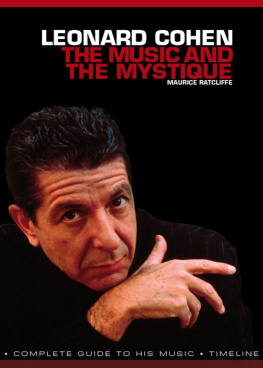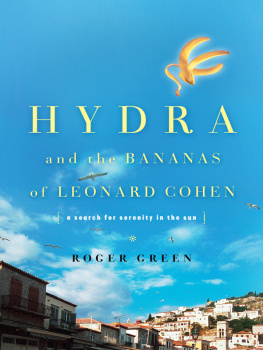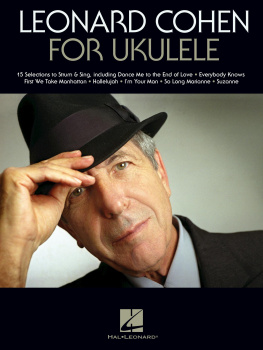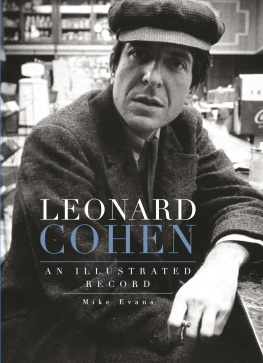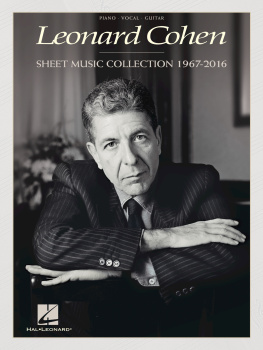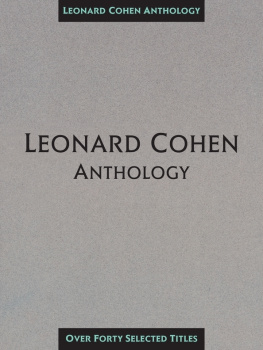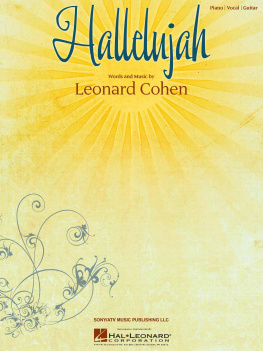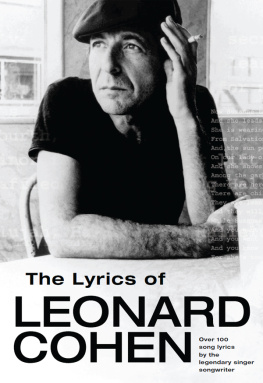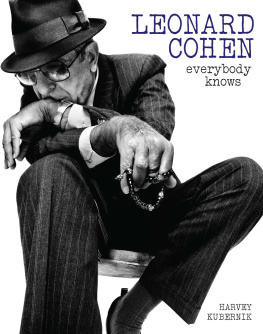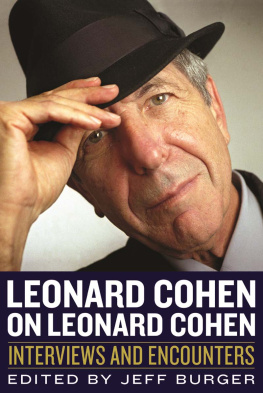
Copyright 2012 Omnibus Press
This edition 2012 Omnibus Press
(A Division of Music Sales Limited, 14-15 Berners Street, London W1T 3LJ)
EISBN: 978-0-85712-822-5
The Author hereby asserts his / her right to be identified as the author of this work in accordance with Sections 77 to 78 of the Copyright, Designs and Patents Act 1988.
All rights reserved. No part of this book may be reproduced in any form or by any electronic or mechanical means, including information storage and retrieval systems, without permission in writing from the publisher, except by a reviewer who may quote brief passages.
Every effort has been made to trace the copyright holders of the photographs in this book, but one or two were unreachable. We would be grateful if the photographers concerned would contact us.
A catalogue record of this book is available from the British Library.
For all your musical needs including instruments, sheet music and accessories, visit www.musicroom.com
For on-demand sheet music straight to your home printer, visit www.sheetmusicdirect.com






INTRODUCTION
Music to slit your wrists by. This easy joke about Leonard Cohens work contains, like all good jokes, a seed of truth, but it is a seed that grows into a rather puny plant. Cohen is an intelligent and serious man as, in large part, is his audience. It would therefore be surprising if he had chosen to ignore the complexities of human existence and confined himself to rose-tinted niceties. As a consequence, and sometimes for more personal reasons, he has often painted a bleak picture of the world. What is important to note is that this is not all he has painted: all of Cohens work exhibits a high standard of artistry, and everything he has done good, bad or indifferent has been done with conscious integrity.
The music of Leonard Cohen, which is described song-by-song in this book, offers a range of pleasures. He is first and foremost a very good songwriter. He has a gift for phraseology, which never comes without a love and knowledge of words. He has a command of form, which offers serious enjoyment for the connoisseur. He also possesses an often underrated talent for melody and has developed, in the studio and on tour, a solid musicianship.
As a songwriter, Cohen has dealt with a wide variety of subjects, but there are consistent themes that run throughout his work. If there is one dominant theme it is love, though he has covered many different aspects of this universal, not to say infinite, subject. Many of his songs deal with the failure of relationships. In others, he is lyrical about carnal love. But he has also treated the subject of love more philosophically, assessing its importance as the only engine of survival.
Another major theme in the work of Leonard Cohen is the tension between our need for freedom and the difficulties freedom can bring. He knows the pain of freedom just as much as the pain of confinement, and is well acquainted with existential fear. Although not an explicitly political writer, and rarely a direct social commentator, Cohen is clearly in the libertarian camp and on the side of social justice.
There is also a strong religious sensibility informing his work, founded in his native Judaism and consolidated by the Buddhism he has adopted in adult life. He remains a poet, however, not a theologian. It is the spiritual quest, the understanding of humankinds place in the cosmos, that interests Cohen, rather than rites of worship or definitions of divinity. His religious sensibility also enables him to utilise religious phraseology in songs with entirely secular subjects. (Curiously, many of his most spiritual songs avoid overtly religious language.)
Cohen is also witty often wryly humorous. Listening to his music is, it must be stressed, an enjoyable experience. Though the world at large may perceive him as the poet laureate of pessimism, the body of work he has produced is rewarding to encounter and offers gourmet pleasures to the discerning palate.
This book provides a guided tour of Leonard Cohens musical output, through the ups and downs of his professional, commercial and personal life, from his earliest recordings to his most recent. Like any guided tour, it is intended to illuminate, to distinguish the major from the minor, and to point out obscure and interesting details. I hope you find it succeeds.
Leonard Cohen recorded his first album in 1967. Since then he has released a further 10 studio albums, six live albums and three volumes of greatest hits. By any standards, this represents a long career and, in qualitative if perhaps not quantitative terms, a productive one, but it was not Cohens first. He is unusual, if not unique, in having established a considerable (though unremunerative) reputation as a poet and novelist before turning professionally to music. Some knowledge of Cohens literary career and personal background would seem appropriate here, to facilitate an understanding of his music.
Cohen was born in Montreal in 1934 into a prosperous and respectable Jewish family. In his parents we can see the meeting of two distinct and typical threads in the tapestry of modern Jewish experience. His fathers family had first arrived in Canada in 1869. His grandfather, Lyon Cohen, was a successful businessman, the head of the largest clothing manufacturers in the British Empire, as well as being a pillar of the Canadian Jewish community and an influential figure in political circles. He was a typical example of the outward-looking, cultured, English-speaking Jew referred to, in the fashionable phrase of the time, as a gentleman of Hebrew persuasion.
His maternal grandfather, by contrast, embodied a different but equally representative Jewish experience. Rabbi Solomon Klinitsky-Klein was a Yiddish-speaking rabbinic scholar who had known, and fled, the pogroms in Eastern Europe. He and his young family did not arrive in Canada till 1923. An intellectual with a deep knowledge of the Talmud, Rabbi Klein was the kind of scholar of whom it was said that he could put a pin through a sacred tome and know every letter it touched. He had a profound influence on his grandson, both by exemplifying the erudite, devout yet poetic world of the ghetto rabbinate and by providing, through his final sad dementia, an early lesson about the nature of change and decay.
From 1951 to 1955, Cohen studied at Montreals prestigious McGill University, where he fell into the company of poets and novelists. After graduating, and with two creative writing prizes under his belt, he resolved to follow a literary career. I yearned, he later said, to live a bohemian life; an unstructured life but a consecrated one. His motives may have been mixed (he has subsequently admitted that, mostly what I was trying to do was get a date) but there is no doubt that he took writing seriously. He was one of a number of writers who saw themselves as an avant-garde dedicated to revitalising a Canadian literary scene that had become tame and bourgeoisified, forced to write with maple syrup on birch bark in Aileen Collins evocative phrase. He wanted his own poems to be informed by a sensibility which comprehends the bombing of cities, concentration camps and human infidelity. In that, he was a child of his time.

